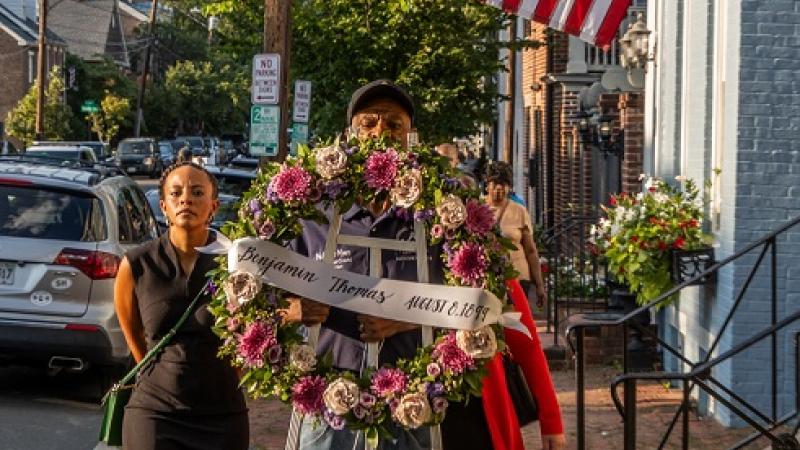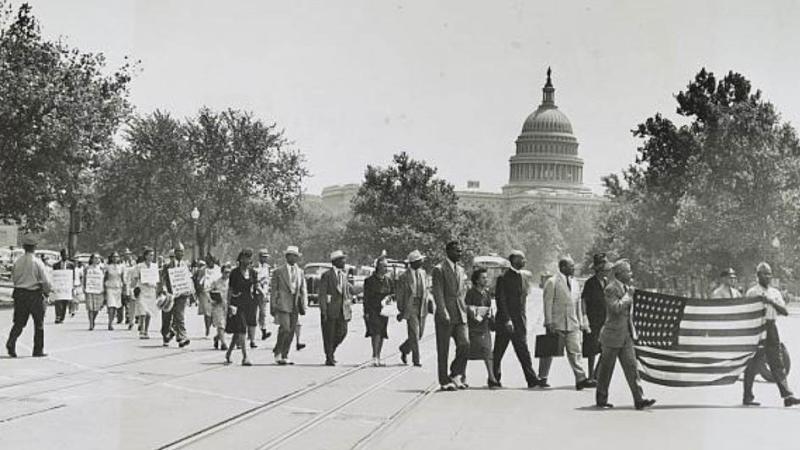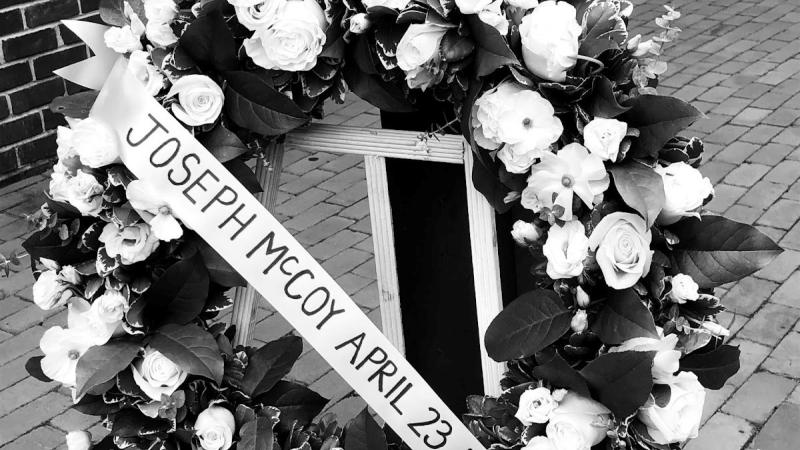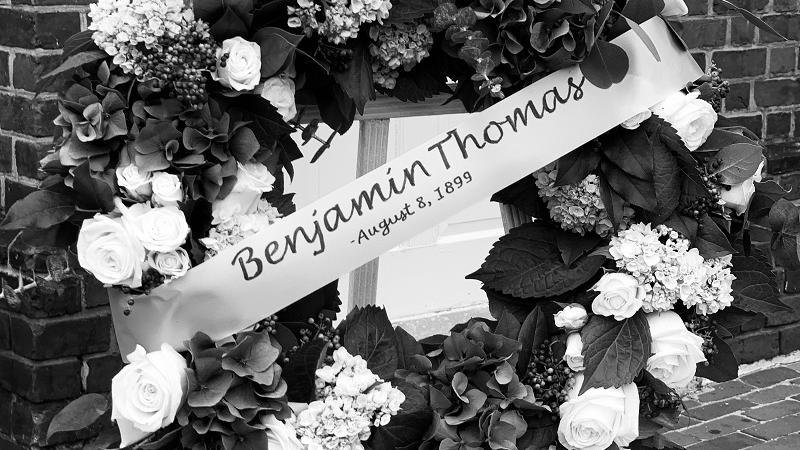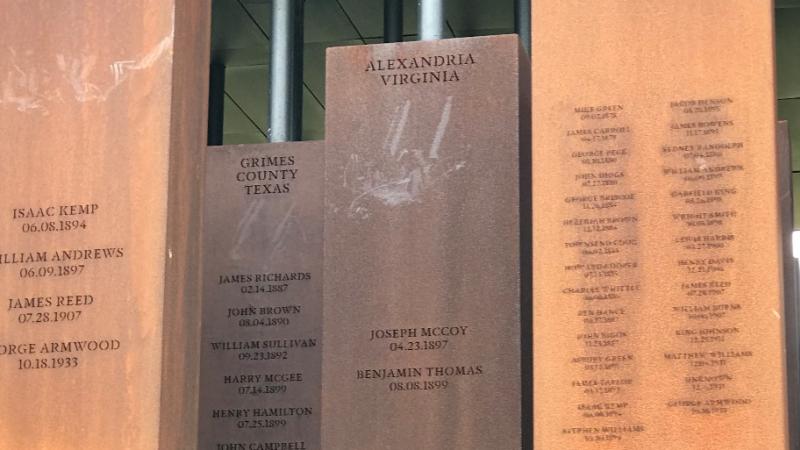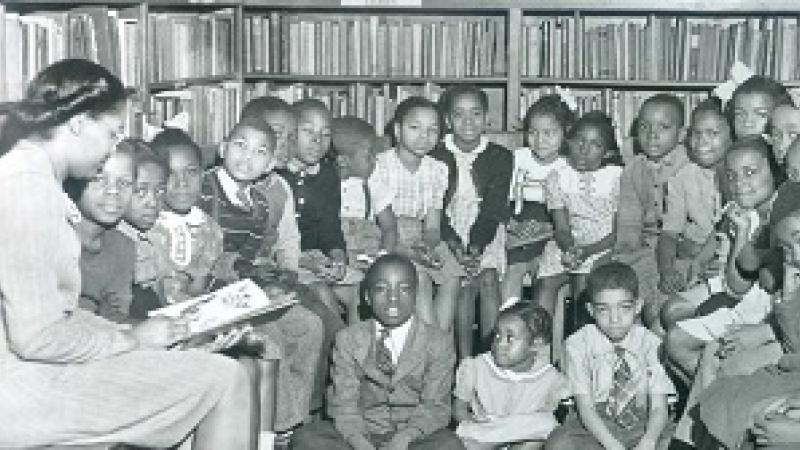Alexandria Community Remembrance Project
Alexandria Community Remembrance Project
Inspired by the work of Bryan Stevenson and the Equal Justice Initiative (EJI), City Council formed the Alexandria Community Remembrance Project in 2019, initially to participate in EJI's Remembrance Project. After researching the lynchings of Joseph McCoy and Benjamin Thomas, establishing historic markers acknowledging this history, holding soil collection ceremonies, an essay contest and participating in a pilgrimage to the National Memorial for Peace and Justice, ACRP continues on our path to help Alexandrians and visitors better understand our shared history. Recognizing the truth about the past is an act of justice and is necessary to support a culture of belonging among all Alexandrians. The Office of Historic Alexandria's African American History Division heads up the work and is directed by a Steering Committee. Since 2019, the Alexandria Community Remembrance Project (ACRP) has been dedicated to helping residents and visitors understand our shared history.
The best way to learn about ACRP and to get involved is to sign up to have ACRP's eNews delivered to your inbox.
Support the “Banned Truth Tour of Alexandria”
This fall, we want to build on the incredible multigenerational experience ACRP had on and after the pilgrimage to Alabama in 2022 and launch a new Remembrance Student Club at Alexandria City High School. On the Banned Truth Tour of Alexandria, students will learn about Alexandria’s African American history, including content on the historic communities, the domestic slave trade, the Civil War, and the fight against Jim Crow laws and segregation. This history will be distilled into three Saturday field trips followed by a research project related to Alexandria history and a Showcase Competition in the Spring of 2026. We need to raise $7,000 to pay for scholarships, programming and meals.
Give to the McCoy & Thomas Memorial Scholarships
ACRP has established two scholarships to recognize and remember this City’s known lynching victims: Joseph McCoy (1897) and Benjamin Thomas (1899). We have partnered with the Scholarship Fund of Alexandria to provide a $3000 scholarship to two Alexandria City High School students in 2024. Make a donation to memorialize McCoy and Thomas for the future generations.
ACRP Faith Initiative
The ACRP Faith Initiative represents approximately 30 congregations and places of worship in Alexandria. The clergy from historically Black and white churches came together at the soil collection for Joseph McCoy and Benjamin Thomas in September 2022 and continue to meet, hold workshops and participate in ACRP Remembrance Events. The Faith Initiative seeks to bring together faith leaders across Alexandria to break down divisions and seek restoration while working toward the goal of creating a community where all feel safe, welcome, and valued. Read more about the Faith Initiative's Affirmation Statement on the websites of the co-chairs at Beulah Baptist Church and Trinity United Methodist Church.
Lynchings in Alexandria
Between 1877 and 1950, 99 Virginians, including at least 11 in Northern Virginia, were lynched. The lynchings were among 6.500 reported nationwide during the same period. Lynching was not a federal offense until March 29, 2022.
In Alexandria, there is documentation of the lynching of two individuals, Joseph McCoy and Benjamin Thomas. See below for narratives of the lynchings. The City of Alexandria wishes to thank the members of the Research Committee for their more than 3,000 hours of work on the narratives.
The City of Alexandria is committed to the accurate dissemination of its history. The lynchings are recognized as a terrible chapter in Alexandria’s past. To fight injustice and keep the memory of Alexandria’s lynching victims alive, you are invited to participate in the Alexandria Community Remembrance Project.
Commentary: A Man Was Lynched in Alexandria: 120 Years Ago Today
Opinion piece by Audrey Davis, Director, Alexandria Black History Museum
Published in the Alexandria Gazette Packet, August 12, 2019.
The Anniversary of the Lynching of Joseph McCoy
Opinion piece by Audrey Davis, Director, Alexandria Black History Museum
Published in the Alexandria Gazette Packet, April 23-29, 2020, page 6.
Say Their Names: In Remembrance: Benjamin Thomas, August 8, 1899
Opinion piece by Audrey Davis, Director, Alexandria Black History Museum
Published in the Alexandria Gazette Packet, August 6, 2020, page 6.
State Lives With a Legacy of Terror as Nation Pays Tribute to Victims’ Descendants
By Avis Thomas-Lester
Published in The Washington Post, July 7, 2005
Descendant Survey
To fully tell the story of Alexandria’s lynching history, the City of Alexandria wants to document not only the incidents but also stories from descendants. If you are related to one of the lynching victims, or if you are a descendant of anyone involved in the Joseph McCoy lynching (April 23, 1897) or Benjamin Thomas lynching (August 8, 1899), we want to hear from you.
Please share your story and contact information with the historians of the Alexandria Community Remembrance Project. If you are a descendant, and feel comfortable sharing your family story, our historians can assist you in being part of the Alexandria project history. Your information will not be shared. Your name will not be made public unless you grant permission and then only on your terms. We want document these two lynchings as completely as possible. Our goal is to create an unbiased and accurate account of the lynching’s in 1897 and 1899. We believe family histories can aid in a better understanding of race relations in Alexandria and the Commonwealth. Your history could help move our community toward a city-wide understanding of racial terror and its impact on communities. Finally, it also hoped this important project will bring all races together in the spirit of reconciliation and hope.
Do you have family history related to Alexandria’s 19th century lynchings?
